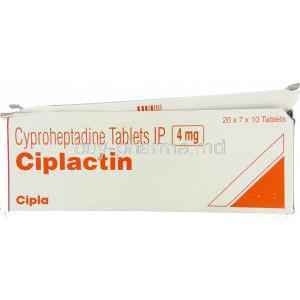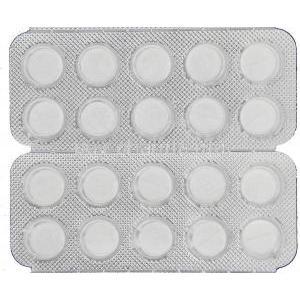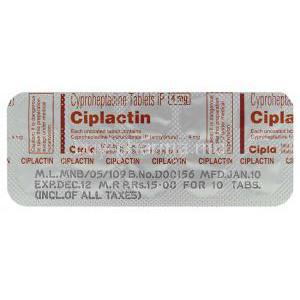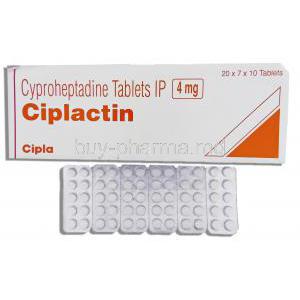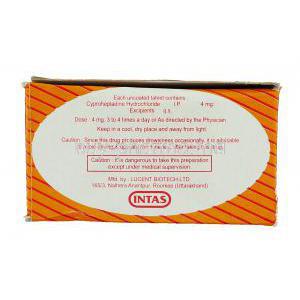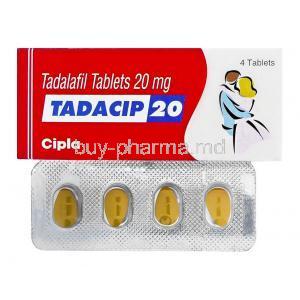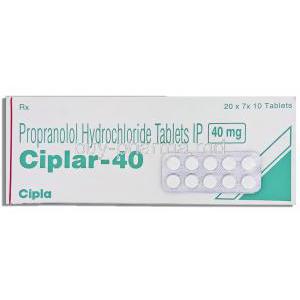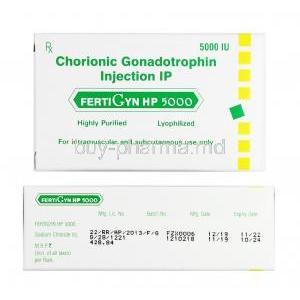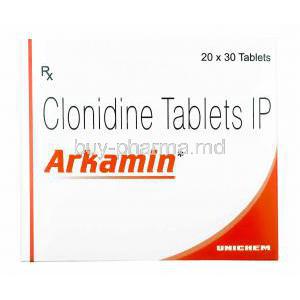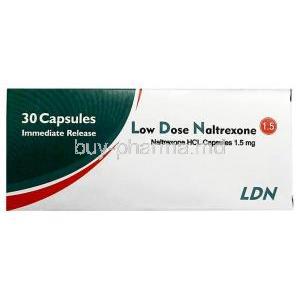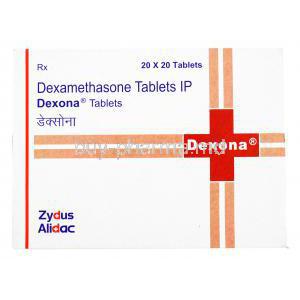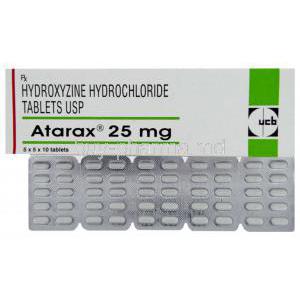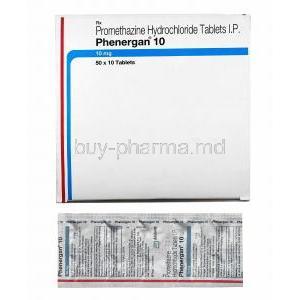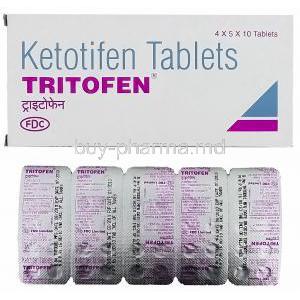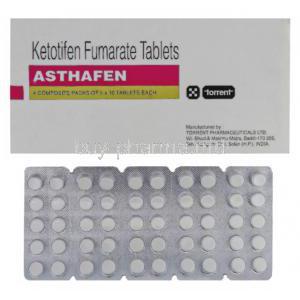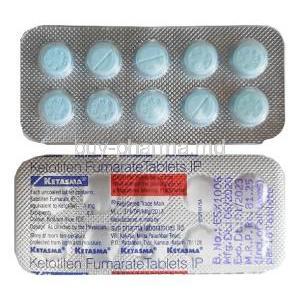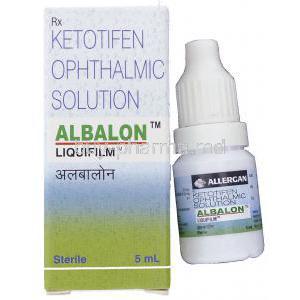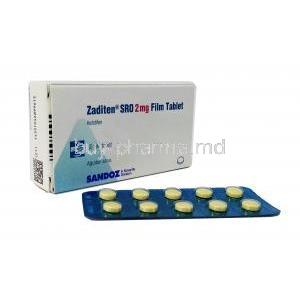Cyproheptadine
- I. Introduction to Cyproheptadine
- II. Composition and Properties of Cyproheptadine
- III. The Mechanism: How Cyproheptadine Works
- IV. Approved Uses of Cyproheptadine
- V. Off-Label Uses of Cyproheptadine
- VI. Dosage and Administration of Cyproheptadine
- VII. Potential Interactions with Cyproheptadine
- VIII. Warnings and Contraindications for Cyproheptadine Use
- IX. Special Considerations for Cyproheptadine Administration
- X. Common and Serious Side Effects of Cyproheptadine
- XI. Handling Overdosage of Cyproheptadine
- XII. Storage and Handling Precautions for Cyproheptadine
- XIII. Final Thoughts: The Importance of Careful Administration
I. Introduction to Cyproheptadine
A. Defining Cyproheptadine: Its role in medical science
Cyproheptadine, an antihistamine drug, is commonly prescribed to relieve allergy symptoms. It is well known for reducing itchiness, redness, swelling, and other allergic reactions. Being a first-generation antihistamine, it works by blocking the release of histamine. A chemical produced by our system when it detects potential dangers.
B. Brief history and development of Cyproheptadine
Cyproheptadine, a pharmaceutical with a history, emerged in the late 1940s when scientists were investigating more robust and less drowsy antihistamines. Merck, a healthcare company, introduced this medication in 1961. Since then, its uses have expanded beyond treating allergies. Found relevance in various medical conditions.
II. Composition and Properties of Cyproheptadine
A. Chemical composition: Breaking down the elements
Cyproheptadine is known chemically as 4 (5H Dibenzo[a d]cyclohepten 5 ylidene) 1 methyl piperidine hydrochloride. This compound is a mixture of the E and Z isomers in proportions making it a racemate. Its molecular weight is 350.89 g/mol. This compound consists of carbon, hydrogen, and nitrogen atoms arranged in a complex manner. To break it down further, the elemental composition is 72.61% carbon, 7.59% hydrogen, 7.99% nitrogen, and 10.08% chloride by weight. Molecular Formula; C21H21N•HCl

B. Physical properties: Understanding its form and appearance
Cyproheptadine is commonly available in the form of crystals, which have a slightly yellowish color and can dissolve in water. The melting point of this compound ranges from 165 to 167 degrees Celsius ensuring its stability at average room temperature. This characteristic is crucial when considering its usage among consumers.
III. The Mechanism: How Cyproheptadine Works
A. The science behind its effectiveness: Understanding its mechanism
Cyproheptadine essentially acts as a blocker for receptors in the body, namely histamine (H1) and serotonin (5 HT2) receptors. Its primary function is to prevent the functioning of histamine and serotonin, which ultimately helps alleviate symptoms related to their excessive release or activity.
B. Effects on the human body: Changes induced by Cyproheptadine
Cyproheptadines' antagonistic properties in the body lead to a range of effects. Its primary role is to alleviate symptoms by blocking the binding of histamine to its receptors, thereby preventing an allergic reaction. Additionally, its impact on receptors is significant in its clinical applications. This medication has helped treat serotonin syndrome, a condition characterized by serotonin transmission.
IV. Approved Uses of Cyproheptadine
A. FDA-approved indications: Common applications
Cyproheptadine has been approved by the Food and Drug Administration (FDA) in the United States for various types of allergic reactions, including skin reactions, seasonal or year-round allergies, non-allergic runny nose, allergic inflammation of the conjunctiva, mild, uncomplicated allergic skin reactions, cold hives, anaphylactic reactions, and allergic reactions caused by blood or plasma1. It also treats perennial and seasonal allergic rhinitis, vasomotor rhinitis, and allergic conjunctivitis caused by airborne allergens and certain foods. Additionally, it is utilized to alleviate cases of urticaria and angioedema, which are allergic skin reactions1.
Here are some references that you can check for more information about Cyproheptadine:
- FDA label for Cyproheptadine hydrochloride tablets USP
- Medical News Today article on Apetamin
- Practical Pain Management article on Cyproheptadine
- Healthline article on Cyproheptadine and Migraine
B. Global perspective: Usage across different countries and cultures
Cyproheptadine is an antihistamine used to treat allergic reactions such as hay fever, sneezing, runny nose, itching, red or watery eyes, and other seasonal allergies12. It also treats other conditions, such as eczema or skin reactions to insect bites12. Cyproheptadine has been used internationally for various purposes, including increasing appetite in individuals struggling with anorexia or malnutrition34. However, this use is not officially approved. Despite the differences in its utilization, its antihistaminic properties are widely acknowledged3.
Here are some references that you can check for more information about Cyproheptadine:
- Drugs.com article on Cyproheptadine (International database)
- Wikipedia article on Cyproheptadine
- eMedicineHealth article on cyproheptadine Uses, Side Effects, Dosage & Interactions
- Drugs.com article on Cyproheptadine Uses, Side Effects & Warnings
V. Off-Label Uses of Cyproheptadine
A. Understanding off-label usage: An overview
Cyproheptadine is a drug mainly used to treat allergic reactions such as hay fever, sneezing, runny nose, itching, red or watery eyes, and other symptoms of seasonal allergies1. However, it has some off-label uses, meaning it is used for a purpose that the FDA does not approve. Some of these off-label uses include:
- Improving akathisia (restlessness) in people on antipsychotic medications1
- Treating various skin conditions such as psychogenic itch, drug-induced hyperhidrosis (excessive sweating), and prevention of blister formation1
- Preventing migraine in children and adolescents2
Here are some references that you can check for more information about Cyproheptadine:
- Wikipedia article on Cyproheptadine
- Medscape article on Cyproheptadine dosing, indications, interactions, adverse effects, and more
- Healthline article on Cyproheptadine and Migraine
B. Case studies and patient experiences: Real-world application beyond the label
Case studies have provided evidence for the off-label use of Cyproheptadine. For example, there was a case report that discussed how the drug had effects in helping a patient with PTSD manage their nightmares. Another case study showed that Cyproheptadine was effective as an appetite stimulant for children who were malnourished. These real-life experiences illustrate the versatility of this medication.
Here are some references that you can check for more information about Cyproheptadine:
- Wikipedia article on Cyproheptadine
- Medscape article on Cyproheptadine dosing, indications, interactions, adverse effects, and more
- Healthline article on Cyproheptadine and Migraine
VI. Dosage and Administration of Cyproheptadine
A. General dosage guidelines: Dosage for different age groups
The amount of Cyproheptadine needed depends on age, weight, and the specific condition being treated. For adults and children above the age of 14, starting with a dose of 4 mg three times a day is typically recommended. Children between the ages of 7 to 14 may begin with either 4 mg daily or three times daily, while those aged 2 to 6 years can start with a dose of 2 mg twice daily or three times daily. It is always essential to consult a healthcare professional for dosing instructions.
B. Modes of administration: Oral, injection, etc.
Cyproheptadine is mainly sold in tablet form. It should be taken orally, typically two to three times daily, as a healthcare professional instructs. You can take it with or without food. If swallowing tablets is challenging for you, a form is also available. Injectable Cyproheptadine is usually used in hospital settings.
VII. Potential Interactions with Cyproheptadine
A. Interaction with other drugs: A comprehensive list
Cyproheptadine has the potential to interact with medications, which can change how they work and potentially increase the chances of experiencing adverse reactions. It would be best if you communicated with your healthcare provider about the medicines you are taking to prevent any harmful interactions.
B. Food and lifestyle interactions: Everyday items to avoid
Drinking alcohol while taking Cyproheptadine can intensify drowsiness and should be avoided. Additionally, it's essential to be cautious with grapefruit and juice as they may interact with the medication, potentially causing pronounced side effects. It's an idea to talk with your healthcare provider about lifestyle factors such, as smoking and specific dietary restrictions.
VIII. Warnings and Contraindications for Cyproheptadine Use
A. Contraindications: Situations where usage is discouraged
There are instances where it is not recommended to use Cyproheptadine. These include patients with narrow-angle glaucoma, stomach ulcers, bladder neck obstruction, and newborn or premature infants. Moreover, the drug should not be used by individuals who have a history of being hypersensitive to antihistamines similar to Cyproheptadine.
B. Special warnings: Understanding potential risks
Cyproheptadine might make you sleepy, so it's essential to be careful when driving or doing tasks that need focus. If you have a history of asthma, high eye pressure, an overactive thyroid, heart problems, or high blood pressure, it's best to use this medication cautiously. It's crucial to consult with a healthcare professional for usage.
IX. Special Considerations for Cyproheptadine Administration
A. Administration to the elderly: Necessary precautions and considerations
Elderly individuals often exhibit reactions to medication as their bodies undergo physiological changes associated with aging. These changes can include decreased liver and kidney function. As a result, it is essential to exercise caution when administering Cyproheptadine to adults, typically beginning with a lower dosage. Additionally, monitoring these patients for symptoms such as dizziness, excessive sedation, and low blood pressure is crucial, as these factors can heighten the risk of falls.
B. Administration to pregnant women and nursing mothers: Risks and recommendations
It is advisable to use Cyproheptadine during pregnancy when necessary as there is not enough evidence regarding its safety. Healthcare professionals must carefully consider the benefits and risks before prescribing it to expectant mothers. Moreover, since we don't know if Cyproheptadine passes into breast milk, caution should be exercised when giving it to breastfeeding mothers.
C. Administration to children: Age-specific dosages and precautions
When using Cyproheptadine to treat conditions, caution is essential because children are more susceptible to experiencing anticholinergic effects. These effects can include hallucinations, convulsions, or an exaggerated response to side effects. It is crucial to adjust the dosage based on the child's weight and closely monitor their condition while administering Cyproheptadine.
X. Common and Serious Side Effects of Cyproheptadine
A. Common side effects: Symptoms to expect
Patients generally have a tolerance for Cyproheptadine. However, similar to any medication, it may have some side effects. These commonly include feeling drowsy, experiencing dizziness, having blurred vision, a stomach, or a dry mouth. Typically these symptoms are mild. Tend to diminish as the body adapts to the medication.
B. Serious side effects: Potential dangers and necessary action steps
Serious adverse effects are not very common. There is a possibility they may happen. These could include changes in state or mood, an irregular heartbeat, difficulty with urination, or an allergic reaction. An allergic reaction may manifest as a rash, itching, or swelling of the area, severe dizziness, or difficulty breathing. If you experience any of these symptoms, it is essential to seek medical attention.
XI. Handling Overdosage of Cyproheptadine
A. Recognizing overdose symptoms: Warning signs and immediate actions
If someone takes much of this medication, they may experience severe sleepiness, see things that aren't there, a parched mouth, enlarged pupils, pale or bluish lips, and seizures. It's essential to seek medical help if an overdose is suspected. Don't hesitate to reach out to a healthcare poison control center.
B. Medical interventions for overdose: Hospital procedures and treatments
If someone experiences an overdose, healthcare professionals will primarily concentrate on providing support. This could involve using lavage to empty the stomach and giving activated charcoal to bind the drug and minimize absorption. Intravenous fluids might be used to maintain bodily functions, and in certain instances, specific medications may be administered to counteract the effects of the overdose.
XII. Storage and Handling Precautions for Cyproheptadine
A. Storage conditions: Temperature, humidity and light considerations
Store cyproheptadine at room temperature, away from both light and moisture. Avoid storing it in the bathroom or any location with temperatures, like a freezer or car glove box. Remember to keep it out of the reach and sight of children.
B. Safety measures in handling: Best practices for users and caregivers
It is essential to follow safety precautions when handling the medication, such as washing your hands after. Remember not to share the medicine with anyone, even if they have similar symptoms. When you're done with the pharmaceutical or its packaging make sure to dispose of it and avoid flushing it down toilets or pouring it into drains unless specifically instructed.
XIII. Final Thoughts: The Importance of Careful Administration
A. Reflection on the vital role of the healthcare provider
The expertise of healthcare providers is essential for the safe use of Cyproheptadine, just like any other medication. They have a role in deciding the correct dosage, monitoring how well the drug works, addressing any side effects, and educating patients about their treatment.
B. Summary of key takeaways and recommendations for patients
Cyproheptadine is a helpful medication for treating different conditions. However, it is essential to use it. Patients should follow their dosage strictly, report any side effects immediately, and have regular checkups with their healthcare provider. Lastly, it is crucial to remember the importance of storage and handling to ensure the safety of the medication.


